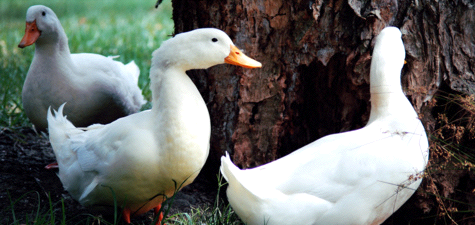
The current issue of The Economistincludes an article covering research that appeared in the Journal of Agricultural and Food Chemistry that starts to clarify whether force feeding ducks and geese is cruel creating diseased livers, or humane since it simulates what the birds do in nature.
Caroline Molette, a biologist at the University of Toulouse, on why some bird’s fattened livers release fat when cooked – and are thus unhealthy, while other livers retain the extra fat – indicating a healthy bird.
The upshot was that the fat-retaining livers were rich in a variety of proteins known to help the body digest and store food. In the fat-shedding livers, by contrast, she found high concentrations of a protein called fatty-acid-binding-protein 4. In a human liver, this would be a marker of disease. Put simply, the fat-retaining livers are healthy while the fat-shedding ones are not.
So, how do farmers figure out which ducks have healthy over-eating habits and produce the good foie gras – and which ducks are unhealthy and produce foie gras that will loose its fat when cook and taste inferior?
That is Caroline Molette’s next task. Chefs, gourmets, and foie gras producers need to know.
